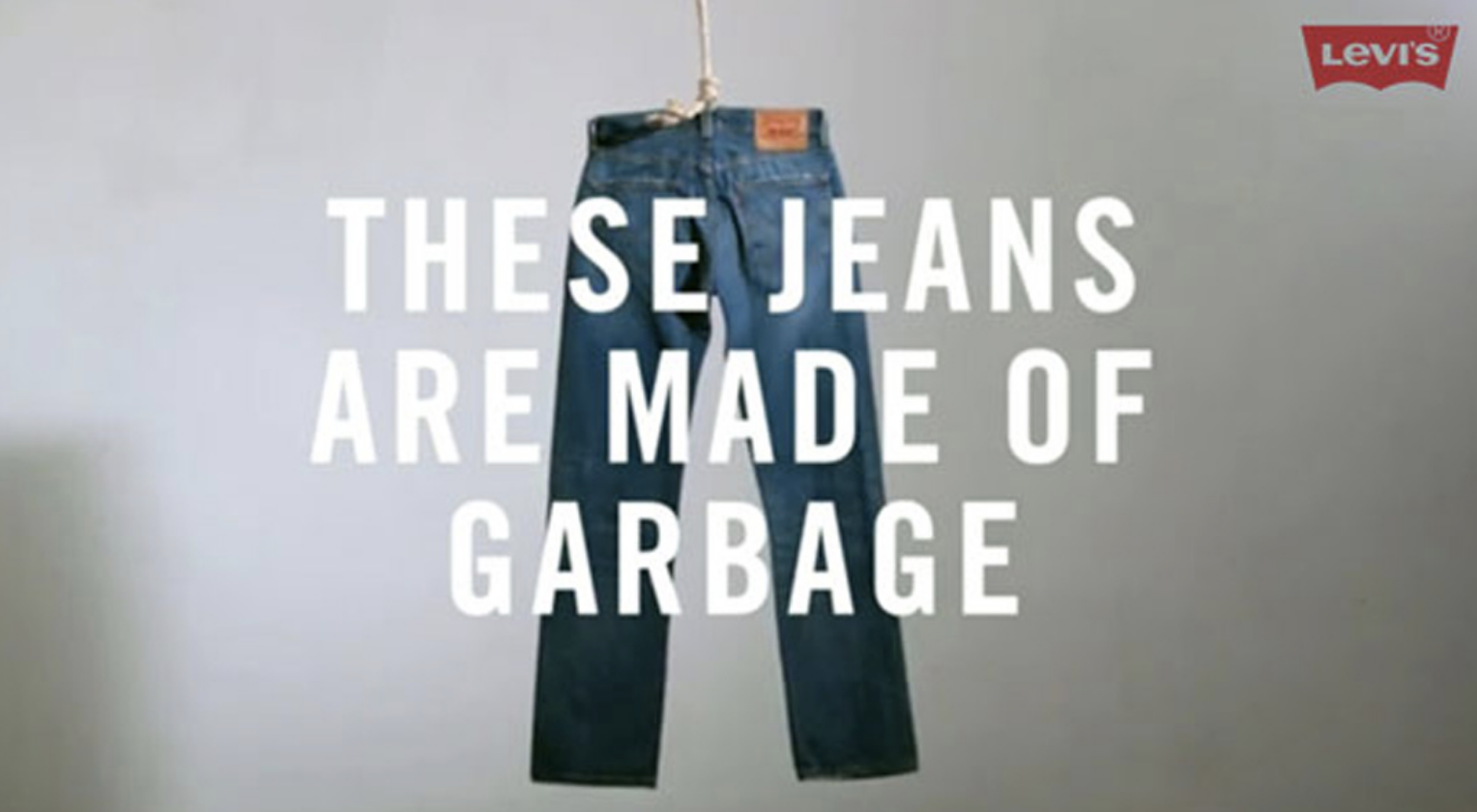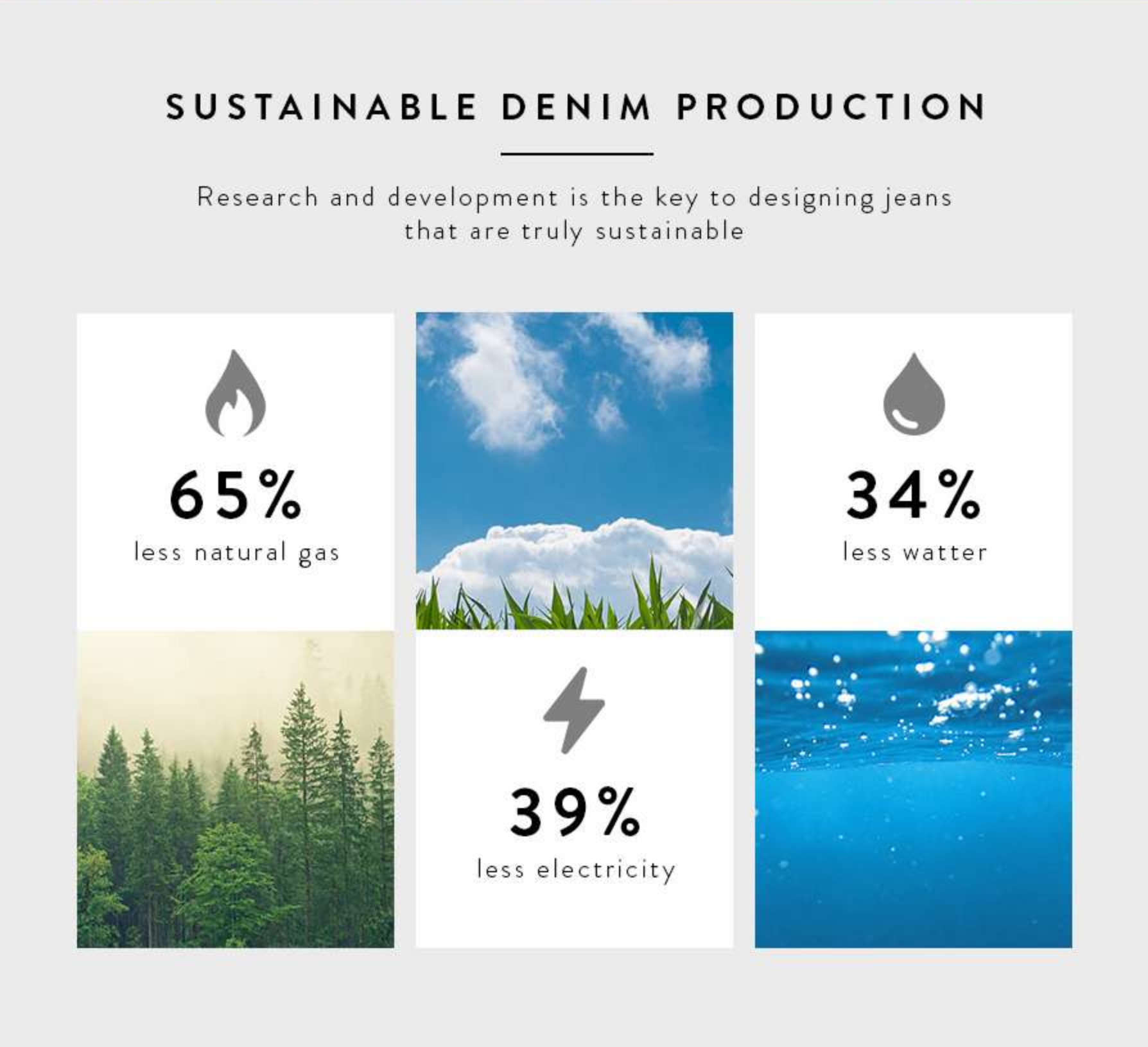Forget ‘Denim on Denim’ as a Faux Pas: Make Denim the Faux Pas

Levi’s Sustainable Jeans
Should we pass on denim altogether? The fashion industry around the globe is getting a major push from consumers and regulators alike to produce in a more sustainable manner.
Our purchasing choices go beyond just influencing companies, they pave way to new consumption patterns. With much of our daily activities being shifted to a cleaner, greener purpose, why should fashion be subject to any exception? Presently, fashion labels aim to create garments with Eco-conscious fabrics and practices in mind.
For decades, efforts have been made by activists, fashion houses and governments to minimize the way one garment – a pair of jeans – can solve a huge ecological crisis.
The topic of clothing sustainability is not a novel idea; and neither is the notion that the fashion industry is one of the leading causes of pollution on the planet.
As our awareness heightens, denim producers are becoming more conscious of the impact the industry is making on our present and future environment. Those efforts include not only sourcing and producing more sustainable materials, but also looking at how suppliers ensure the health of their employees.

Wrangler Sustainable Denim
A few brands of jeans we all know and love include DL1961, Madewell, Wrangler, Reformation and the household giant, Levi’s. Most of these brands strive to achieve ethical practices and use recycled fabrics wherever possible. Currently, many companies throughout the world are taking steps to fostering more alternative solutions. Switching from plain cotton to organic cotton is one option, but there are other steps.
Namely, using eco-friendly liquid sulfur dyes as opposed to indigo dyes. In a recent launch by Stella McCartney, we’re introduced to the world’s first biodegradable stretch denim, crafted using plant-based yarns. They key here is recycled denim, and it’s tough to say whether a production plant can go 100% sustainable. One such brand that has come close to this milestone is Wrangler, notably in the way which they dye their fabrics. Their brand commits to being respectful and gentle enough for future generations.

Cross Jeans Sustainable Denim Production
Good practice starts with radical transparency. This creates a rapport between the consumer and the company in reaching a common goal. As far as statistics go, it takes roughly 1,800 gallons of water to grow the cotton in order to produce just one pair of jeans. This isn’t even considering the water that is necessary to dye the fabrics, which ultimately releases harsh chemicals into our air. The staggering numbers are just half of the equation. Let’s be honest though – people aren’t going to stop purchasing denim any time soon, but something needs to be done about how and where that denim comes from.
Not only does the fashion industry need to pay close attention to the sustainable solutions in producing its denim, but the labeling and packaging that goes into it as well. It only makes sense that the hang tags and the labels that are sewn onto the garments are as eco- friendly as the product itself; which is why The Unique Group is committed to just that.
This can be seen throughout their design and execution on things like organic cotton labels, soy ink printing and recycled polyester labels.
As the search for ethically sourced materials and sustainable practices continues, we have a responsibility to keep ourselves educated on the imprint this wardrobe staple has on us all.
